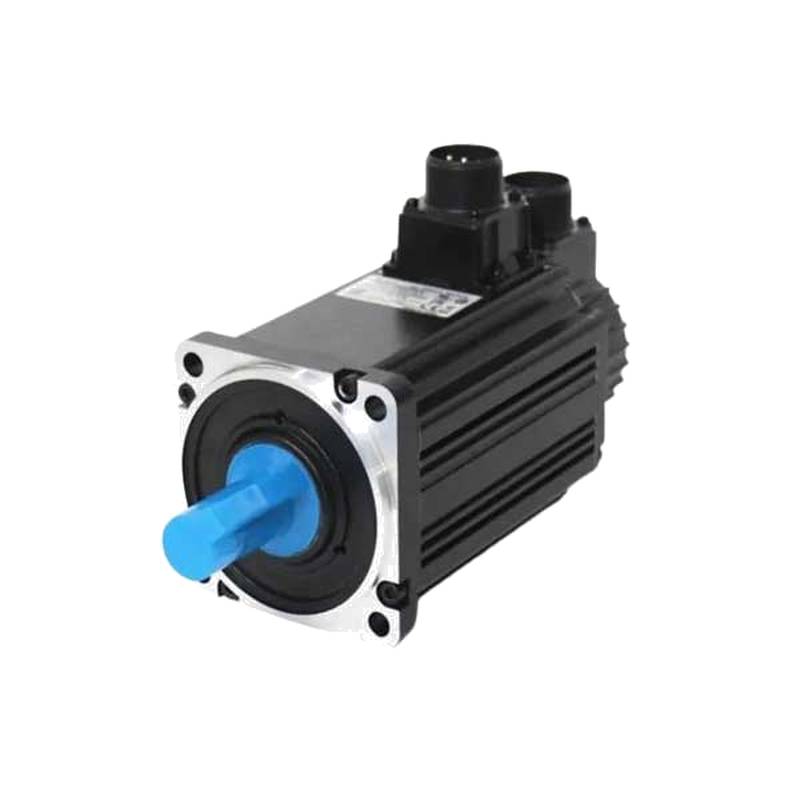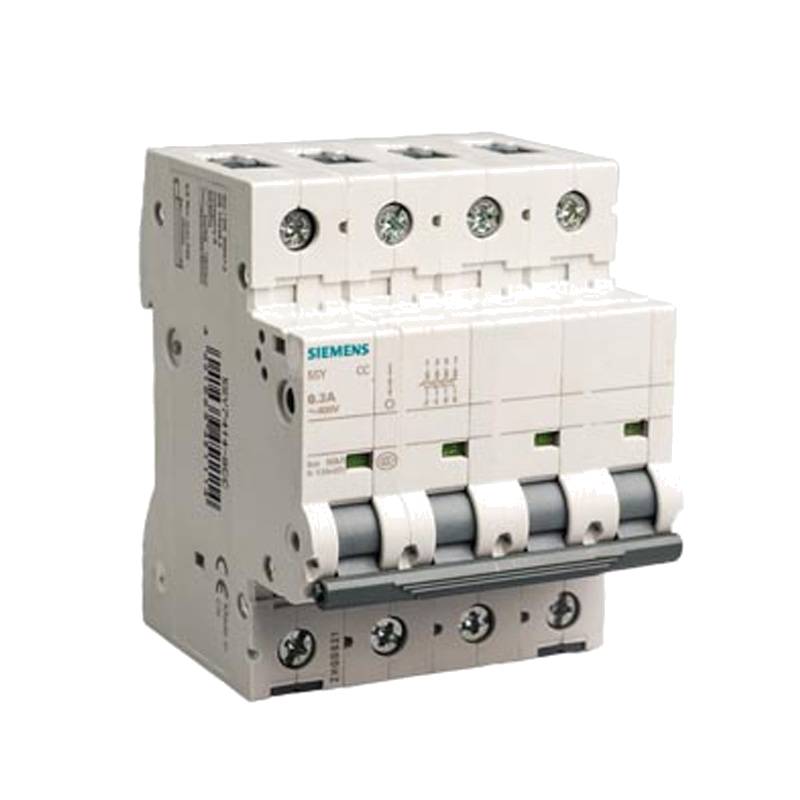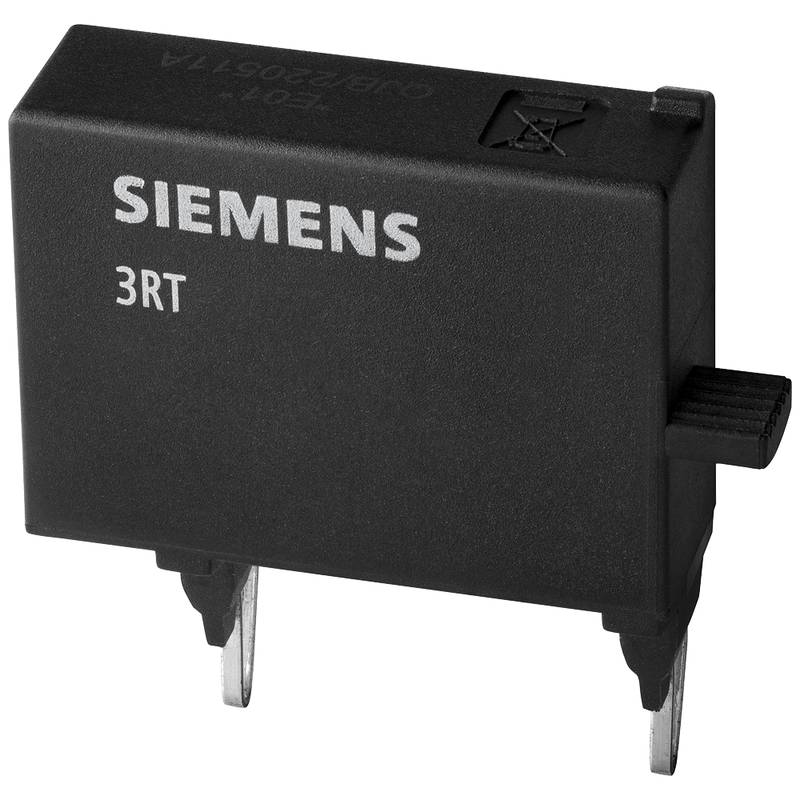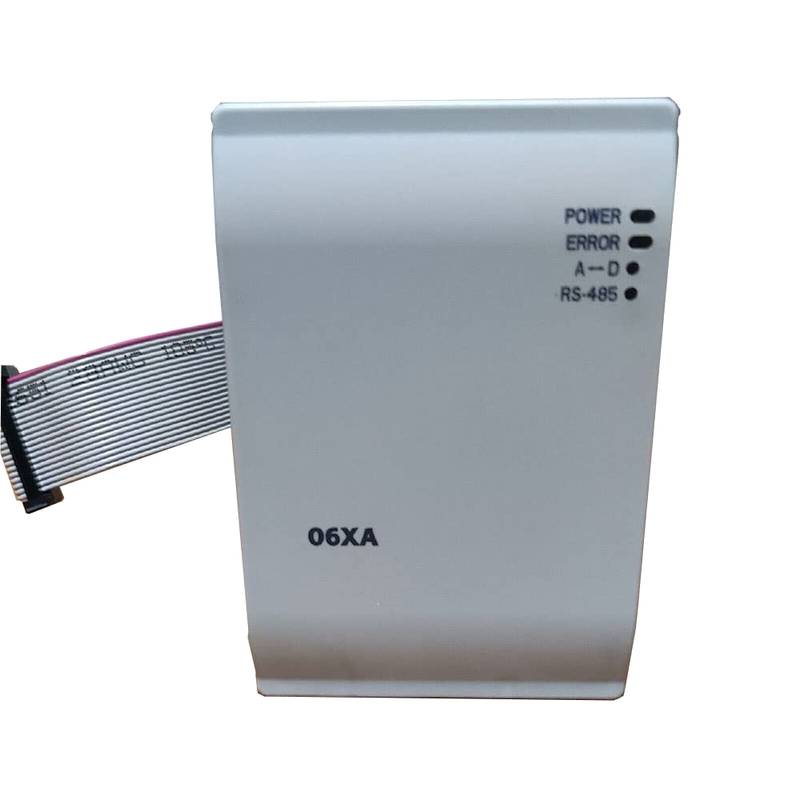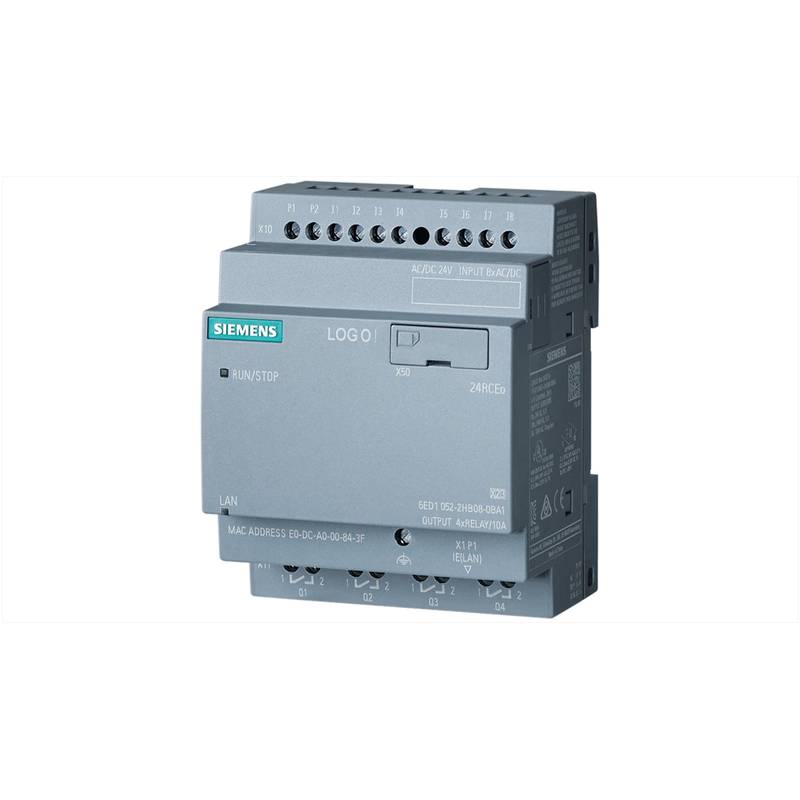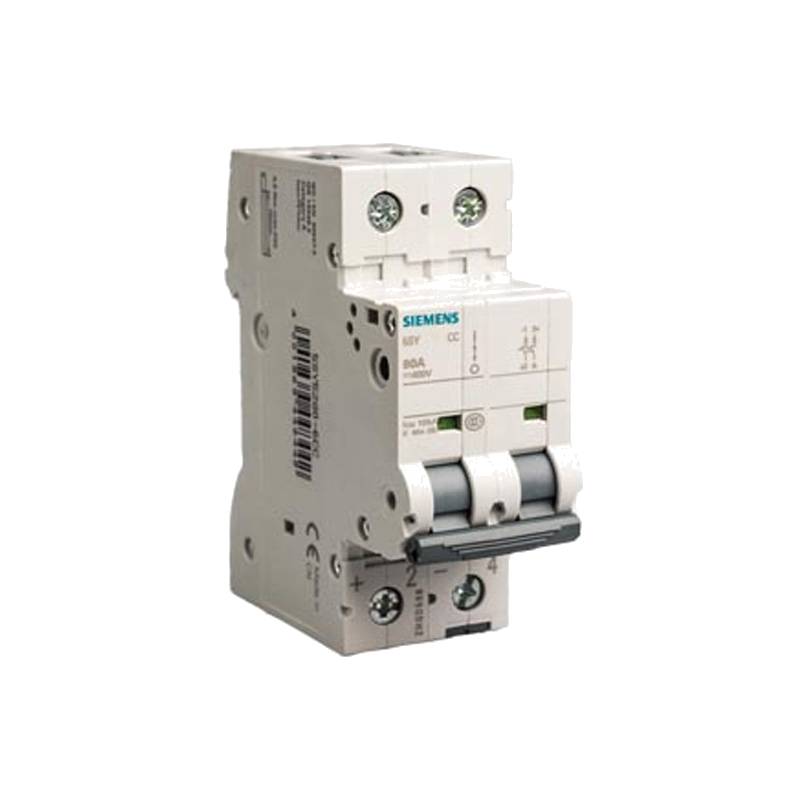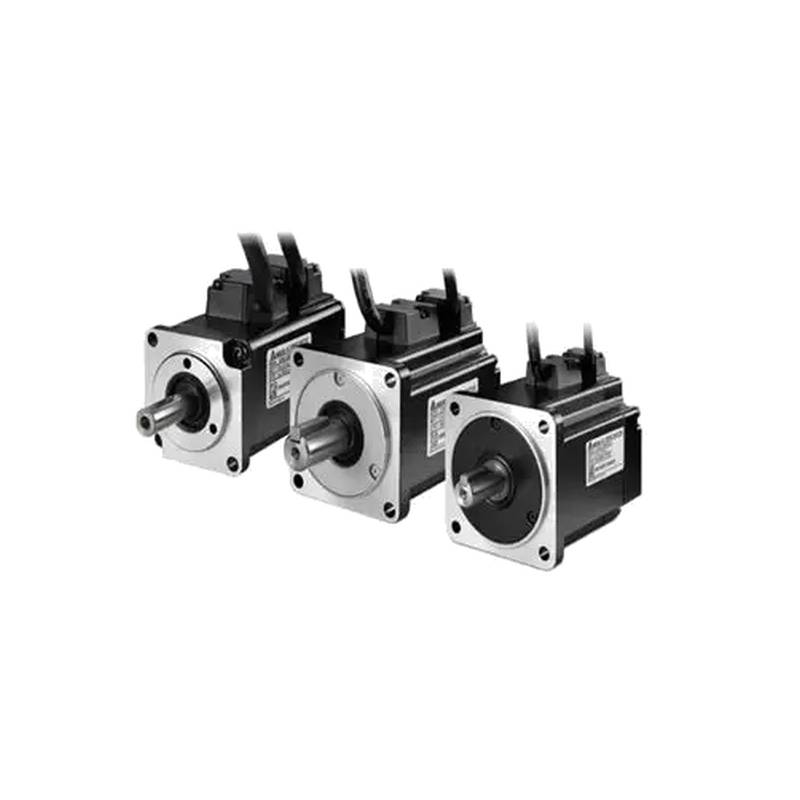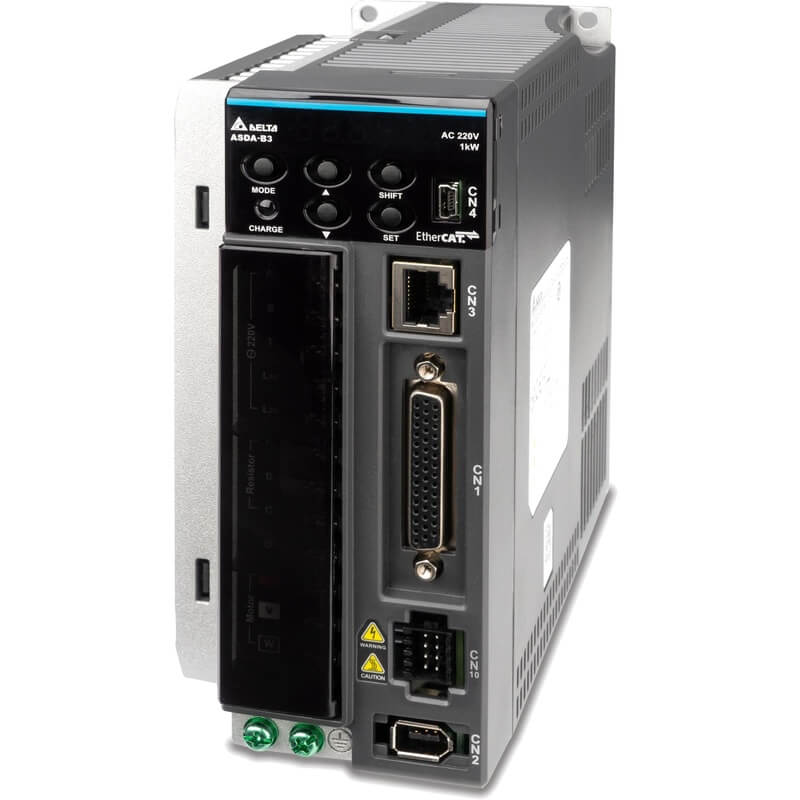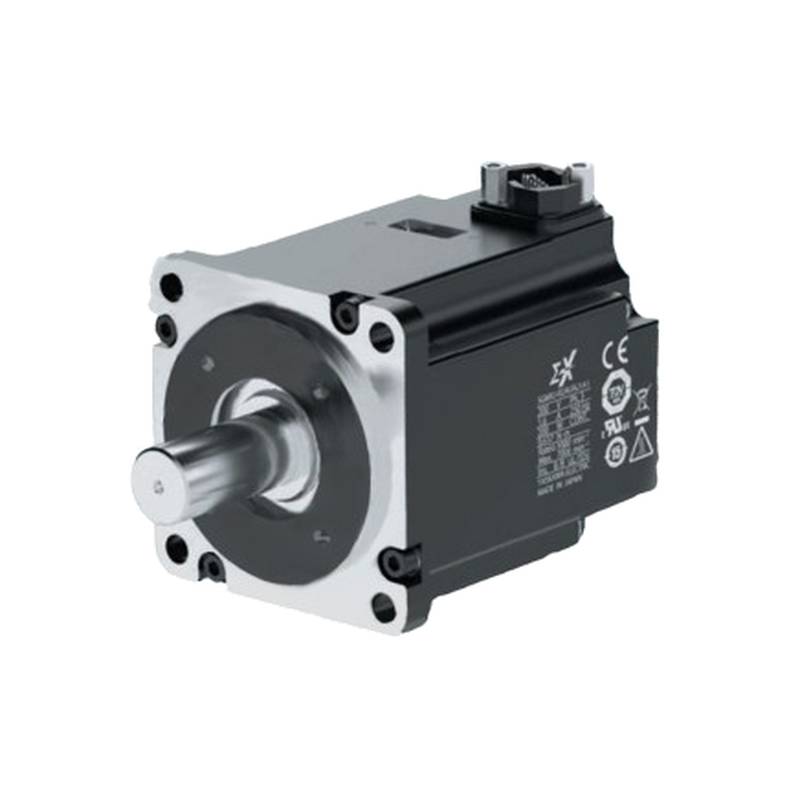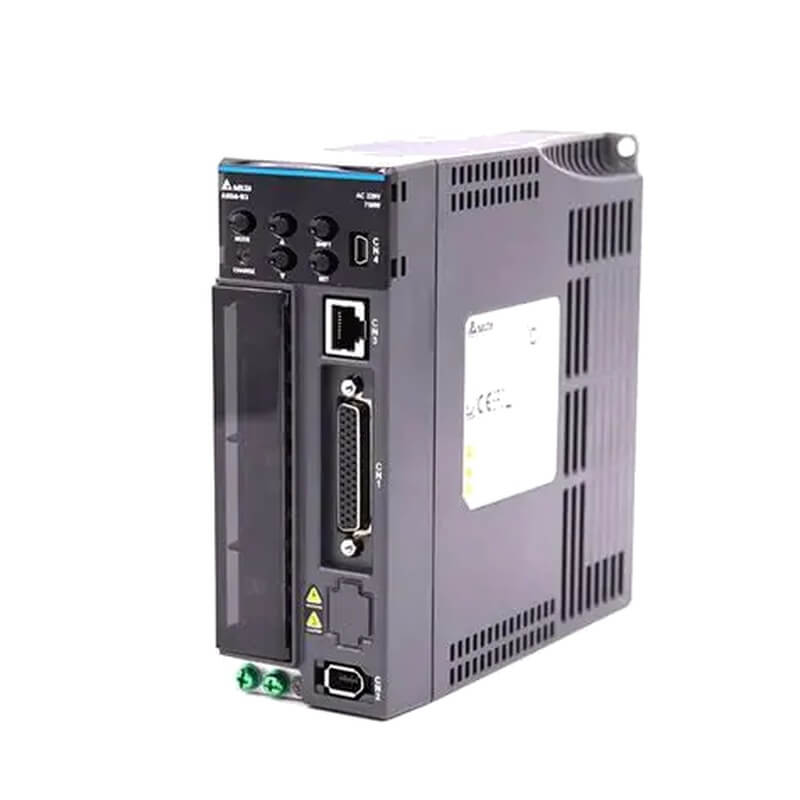
The Delta ECM-B3M-E21315RS1 is a high-resolution, medium-inertia servo motor engineered for demanding industrial automation tasks. This motor excels in applications requiring precise motion control, rapid acceleration, and robust performance. Its key advantages include exceptional positional accuracy, smooth operation, and a compact design that facilitates integration into various machinery. The ECM-B3M-E21315RS1 boasts a rated voltage of 200V, a continuous stall torque of 3.18 Nm, and a peak stall torque of 9.55 Nm, making it suitable for a wide range of dynamic servo applications. With an IP65 protection rating, it ensures reliable operation even in harsh industrial environments.
Product Specifications
| Parameter | Value |
| :--------------------- | :-------------------------------------- |
| Model | ECM-B3M-E21315RS1 |
| Rated Voltage | 200V |
| Continuous Stall Torque| 3.18 Nm |
| Peak Stall Torque | 9.55 Nm |
| Motor Length Code | E2 |
| Encoder Resolution | 17-bit (incremental encoder) |
| Inertia | Medium |
| Protection Class | IP65 |
| Brake | With Brake |
| Shaft | Straight Shaft with Keyway |
| Flange Size | 80mm |
Core Features & Market Positioning
The Delta ECM-B3M-E21315RS1 stands out in the medium-inertia servo motor market due to its superior encoder resolution, offering 17-bit feedback for highly accurate positioning and smooth motion profiles. This advanced feedback system is critical for applications demanding sub-micron precision, differentiating it from motors with lower resolution encoders. Its robust construction, indicated by the IP65 rating, underscores its suitability for challenging industrial settings where dust and water ingress are concerns. Furthermore, the inclusion of an integral brake provides enhanced holding torque, crucial for vertical axis applications and ensuring safety during power loss, a feature often optional or absent in comparable motors from competitors. Delta's commitment to providing integrated solutions, often paired with their servo drives, positions the ECM-B3M-E21315RS1 as a cost-effective yet high-performance option for manufacturers seeking reliable and precise automation.
Key Application Scenarios
This servo motor is ideally suited for precision automation tasks across various industries. In the packaging sector, its high responsiveness and accuracy enable high-speed pick-and-place operations and precise dispensing of materials. For machine tool applications, the ECM-B3M-E21315RS1 facilitates accurate tool positioning and rapid axis movements, enhancing machining efficiency and surface finish. It is also a prime candidate for robotics, where its medium inertia allows for agile yet controlled movements in articulated arms for assembly, welding, or inspection tasks. Furthermore, its suitability for high-cycle applications makes it a valuable component in automated production lines for electronics manufacturing, providing consistent and reliable performance over millions of cycles.
Practical System Integration Guidance
Integrating the Delta ECM-B3M-E21315RS1 into an automation system typically involves pairing it with a compatible Delta servo drive, such as the ASDA-B3 series, to leverage its full capabilities. Proper motor and encoder wiring is paramount; ensure the power and encoder cables are securely connected according to the drive's manual to prevent signal interference and ensure accurate feedback. For initial setup, the servo drive requires motor parameters to be configured, including encoder type, motor pole count, and current/torque settings, which are often auto-detected or can be manually entered. The straight shaft with keyway design allows for direct coupling to driven machinery, requiring a properly aligned coupling to minimize vibration and wear.
Operation and Risk Mitigation
Safe operation of the Delta ECM-B3M-E21315RS1 mandates adherence to the servo drive's safety guidelines. Always ensure the motor's brake is engaged when the system is powered down or during maintenance to prevent uncontrolled movement, especially in vertical applications. Electrical connections should be properly grounded to mitigate risk of electric shock and electrical noise. Common troubleshooting may involve checking for encoder errors, which can manifest as positional inaccuracies or faults; ensure the encoder cable is not damaged and connections are firm. Overcurrent or over-temperature faults typically indicate issues with the motor load or drive settings, requiring a review of the application's torque demands and the servo drive's tuning parameters.
Scalability & Long-Term Value
The ECM-B3M-E21315RS1 offers significant scalability and long-term value within an automation framework. Its compatibility with Delta's broader servo drive and automation ecosystem allows for straightforward expansion of automated systems, enabling users to add more axes or upgrade to higher-performance drives as their production needs evolve. The robust design and high-quality components contribute to a long operational lifespan, minimizing downtime and replacement costs. For businesses looking to embrace Industry 4.0, integrating this motor with Delta's IIoT-enabled drives facilitates data acquisition for predictive maintenance, performance monitoring, and remote diagnostics, thereby enhancing overall factory efficiency and contributing to a more intelligent and connected manufacturing environment.
FAQs
What is the maximum continuous torque of the Delta ECM-B3M-E21315RS1?
The Delta ECM-B3M-E21315RS1 provides a continuous stall torque rating of 3.18 Nm. This sustained torque capability is essential for applications requiring consistent power delivery under load.
This continuous torque rating ensures the motor can operate reliably during extended periods of demanding work cycles without overheating or performance degradation. It is a critical parameter for sizing the motor to specific automation tasks where consistent force is needed.
Understanding this specification helps engineers select the appropriate motor for applications such as continuous material handling, precise positioning systems, or robotic joint actuation that requires steady force application.
What type of encoder does the ECM-B3M-E21315RS1 use for feedback?
The ECM-B3M-E21315RS1 features a high-resolution 17-bit incremental encoder. This advanced encoder provides highly detailed positional feedback.
This level of resolution is crucial for achieving extremely precise movements and maintaining accurate control over speed and position in dynamic applications. It minimizes positional error and enables smoother motion profiles.
The 17-bit encoder ensures that even minute movements are accurately registered, which is vital for tasks like intricate assembly, high-speed pick-and-place, and precision machining operations where accuracy is paramount.
What is the significance of the IP65 rating for this servo motor?
An IP65 rating signifies that the Delta ECM-B3M-E21315RS1 is protected against dust ingress and low-pressure water jets. This makes it suitable for harsh industrial environments.
This robust protection level ensures reliable operation even when exposed to challenging conditions like dust, humidity, or washdown procedures common in many manufacturing facilities. It enhances the motor's durability and longevity.
Industrial applications that involve washdowns, high dust levels, or exposure to moisture can confidently deploy this motor, reducing the risk of premature failure and associated maintenance costs due to environmental factors.














